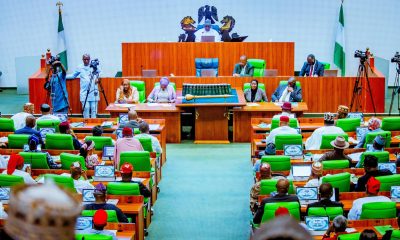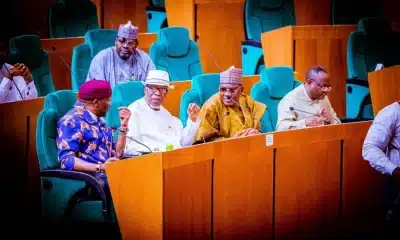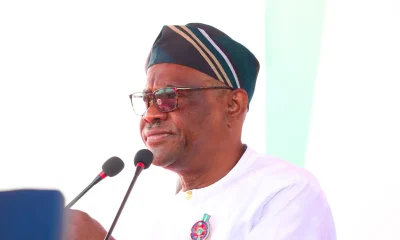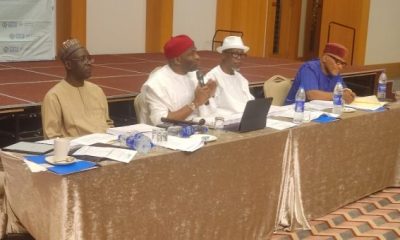Nigeria News
State Police: Jonathan, Abdulsalami, Others To Attend Reps’ National Dialogue

The House of Representatives is set to host a National Dialogue on State Policing on Monday.
Naija News reports that this event is part of the 10th National Assembly’s ongoing efforts to review the 1999 Constitution, particularly focusing on the decentralization of policing in Nigeria.
The Speaker of the House, Abbas Tajudeen, who has been a vocal advocate for legislative reforms in the security sector, announced the dialogue in January as a key initiative under the House’s Legislative Agenda.
“In the area of security, the most important challenge before us is to overhaul and strengthen the security architecture to improve overall effectiveness,” Speaker Abbas had stated at the first plenary session of the year.
The dialogue, themed ‘Pathways to Peace: Reimagining Policing in Nigeria,’ will take place at the Abuja Continental Hotel and is expected to draw participation from top government officials, international delegates, and leaders from various sectors.
Vice President Kashim Shettima is scheduled to attend as the Special Guest of Honour, and Speaker Abbas will deliver the keynote address.
Among the attendees are General Abdulsalami Abubakar, former Nigerian Head of State; Dr Goodluck Jonathan, former President of Nigeria.
This dialogue follows the House’s recent actions on February 20, 2024, when a bill proposing the creation of state police structures was passed for the second reading.
This bill, sponsored by Deputy Speaker Benjamin Okezie Kalu and 14 others, aims to amend relevant sections of the Constitution to empower states to establish their own policing outfits, a move seen as crucial for enhancing localized law enforcement.
Speaker Abbas emphasized the importance of this legislative move at the inauguration of the House Special Committee on the Review of the 1999 Constitution.
“The task before the Constitution review committee is profound… Among these [tasks] are devolution of powers, including state policing; enhancement of fiscal federalism through local government autonomy; further decongesting the Exclusive Legislative List; recognizing and assigning constitutional roles for traditional institutions; and promoting inclusivity, particularly greater gender equity and women representation into appointive and elective positions,” he stated.












